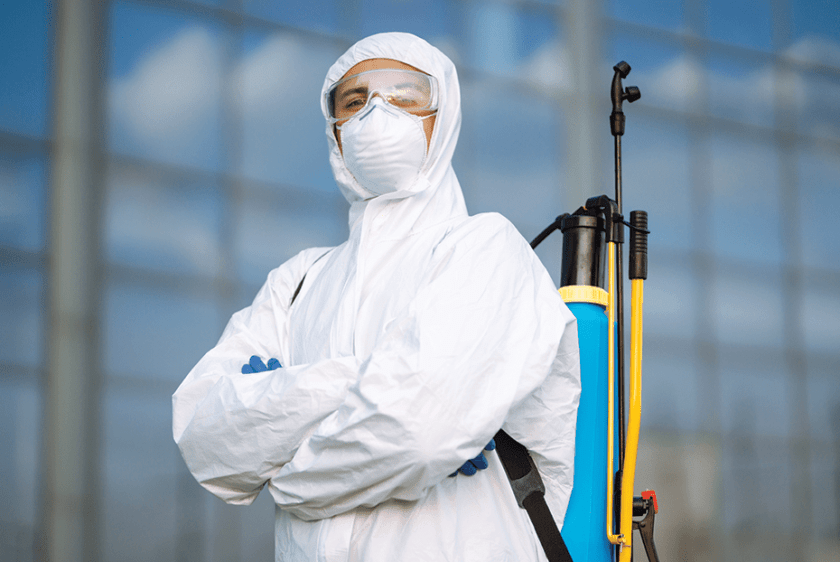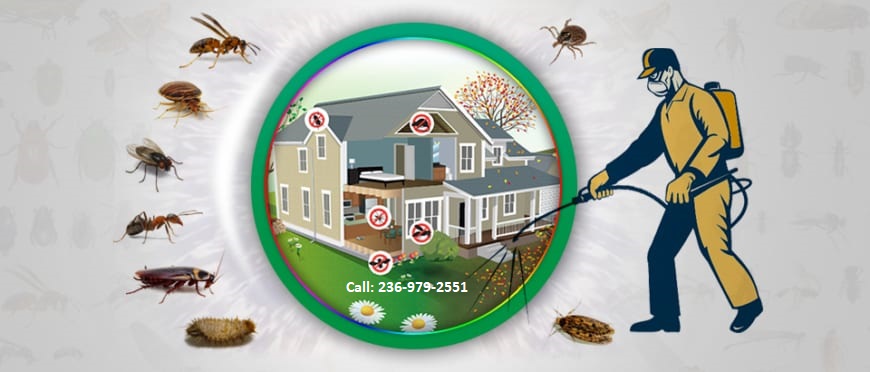Safe and Dependable Pest Control for Lasting Defense
Efficient bug administration requires a diverse approach that balances ecological integrity with the demand for reliable pest reductions. The subtleties of these methods may not be immediately clear, prompting a better exam of the practices that can lead to lasting parasite control end results.
Comprehending Pest Control Methods
Insect control includes a range of methods targeted at handling and getting rid of undesirable insects and rodents that can threaten both wellness and home. Understanding these methods is critical for efficient bug administration.
The primary classifications of insect control techniques include mechanical, biological, and chemical strategies. Mechanical methods entail physical obstacles and catches to avoid insect entrance and capture unwanted types. Using screens on windows or employing sticky traps can significantly lower insect populaces without introducing damaging materials - exterminator coquitlam.

Chemical parasite control is frequently one of the most identified method, using pesticides to get rid of insects. These chemicals can be effective yet need to be made use of with care to prevent negative effects on non-target types and the setting.
Advantages of Eco-Friendly Solutions
How can eco-friendly remedies transform parasite control techniques? The fostering of environment-friendly bug control techniques uses numerous benefits, dramatically boosting the effectiveness and safety and security of pest management.

An additional benefit is the positive effect on local biodiversity. Environment-friendly services are designed to target details bugs while maintaining helpful insects and wild animals, advertising a balanced ecosystem. This approach straightens with the expanding consumer demand for lasting practices, boosting the online reputation of bug control service providers.
Integrated Pest Management Strategies
The application of environment-friendly services naturally results in the fostering of Integrated Insect Administration (IPM) methods, which even more enhance bug control efficacy. IPM is an all natural approach that integrates multiple methods to manage insect populations while reducing ecological influence. This strategy highlights the usage of organic, cultural, mechanical, and chemical controls, making certain a well balanced and sustainable approach of parasite management.
One fundamental aspect of IPM is the thorough assessment of pest task and environmental problems. By keeping track of parasite populaces and recognizing their life process, specialists can implement targeted interventions that interrupt the parasite's environment or lifecycle, lowering dependence on chemical pesticides. Additionally, cultural techniques such as plant rotation and environment adjustment can substantially diminish pest facility and recreation.
Another essential component is using organic control agents, such as helpful pests or microorganisms, which can normally suppress insect populaces. When chemical applications are required, IPM prioritizes using low-risk pesticides and uses them selectively, decreasing direct exposure to non-target organisms and people.
Incorporating IPM strategies not just improves insect control effectiveness but also advertises a much safer ecosystem, aligning with the growing demand for lasting techniques in bug monitoring.
Safe Practices for Home Owners
Understanding the importance of safe techniques in bug control can encourage homeowners to effectively handle bug problems while securing their health and the environment. Carrying out preventative actions and safe approaches is vital in reducing direct exposure to dangerous chemicals.
Home owners ought to first examine their atmosphere for conditions that attract parasites, such as standing mess, food, and water waste. Regularly cleansing and sealing access points can hinder parasites from attacking the home. Using natural deterrents, such as important oils or diatomaceous planet, can offer reliable options to chemical pesticides.
When chemical therapies are needed, home owners must select products that are specifically classified as risk-free for household use. It is crucial to comply with application standards meticulously to prevent overexposure. In addition, making use of targeted treatments in locations where pests are determined, instead of blanket spraying, can substantially lower chemical usage.
Last but not least, maintaining open communication with insect control experts is vital. Home owners ought to ask about the safety of products made use of and demand green choices whenever possible. By taking on these secure practices, home owners can develop dig this a much healthier living environment while properly taking care of parasite issues.

Tips for Long-Term Security
Establishing an insect administration strategy that highlights lasting defense can significantly boost the efficiency of the safe techniques previously talked about. To achieve this, why not check here home owners must carry out routine assessments of their residential property, concentrating on hidden locations such as attics, basements, and crawl areas. Early discovery of bug activity is essential in preventing infestations from holding.
Additionally, maintaining a tidy environment is important. This consists of correct food storage, quickly cleaning spills, and routinely getting rid of trash. These practices lower attractants that attract insects right into the home. Furthermore, sealing entrance factors, such as splits around home windows and doors, can efficiently obstruct possible bug access.
Landscaping should additionally be taken into consideration; maintaining plants cut and keeping a distance in between plants and the home decreases concealing spots for parasites. Utilizing natural deterrents, such as essential oils or diatomaceous earth, can better inhibit infestations without turning to severe chemicals.
Lastly, working together with a specialist pest control solution for regular assessments can provide an added layer of protection. These professionals can use customized recommendations and advanced treatments, making sure that your home continues to be shielded versus pests in the long-term.
Verdict
In verdict, reliable and risk-free bug control needs a multifaceted technique that emphasizes eco-friendly approaches and useful site incorporated insect management. By implementing all-natural deterrents, performing regular examinations, and keeping appropriate sanitation, homeowner can substantially minimize pest populaces while protecting valuable insects and the atmosphere. Partnership with professional insect control services improves the effectiveness of these strategies, guaranteeing customized remedies that supply long-term security and comfort against future invasions.
Efficient bug management requires a multifaceted strategy that balances environmental integrity with the demand for reliable insect reductions. The adoption of environment-friendly pest control approaches offers many benefits, dramatically improving the performance and security of bug administration.The implementation of environment-friendly services naturally leads to the fostering of Integrated Insect Administration (IPM) techniques, which better enhance parasite control effectiveness. exterminator coquitlam. By keeping track of bug populations and determining their life cycles, practitioners can execute targeted interventions that interrupt the bug's environment or lifecycle, minimizing dependence on chemical pesticides.In final thought, safe and dependable insect control needs a complex approach that stresses environment-friendly methods and incorporated bug management